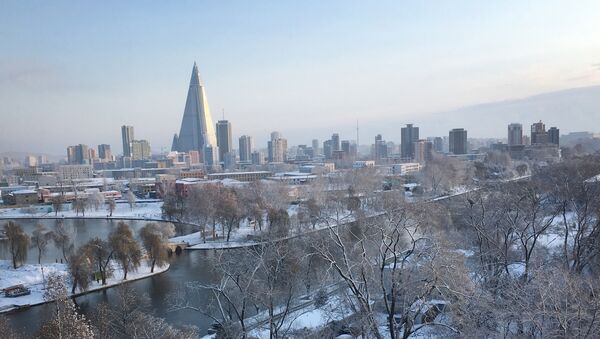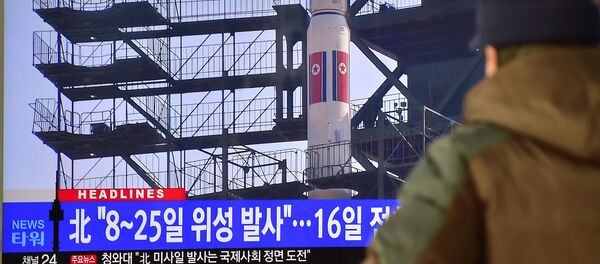In January, Pyongyang declared it had successfully tested a hydrogen bomb. In the following months, the DPRK attempted to prove its ballistic missile capabilities through a series of launches. These actions led to harsh international sanctions.
Following these militaristic announcements, the North Korean government warned its populace on Monday that they would soon suffer economic hardship and famine.
"The road to revolution is long and arduous," reads an editorial in the state-run Rodong Sinmun newspaper. "We may have to go on an arduous march, during which we will have to chew the roots of plants once again."
The editorial also declared the implementation of a "70-day loyalty campaign."
"Even if we give up our lives, we should continue to show our loyalty to our leader, Kim Jong-un, until the end of our lives," according to a statement.
To prepare, every resident of Pyongyang is ordered to provide 2.2 pounds of rice per month to government storage facilities, according to South Korea newspaper Chosun Ilbo. Farmers have been asked to contribute additional rations to the North Korean military.
The timing of the announcement, coming mere weeks after the implementation of new sanctions, cannot be overlooked.
While the West stressed that sanctions would only affect North Korean officials, skeptics warned of a trickle-down effect.
"[The sanctions] make the targeted population more desperate and more dependent on government for their basic survival," Jason Ditz wrote for Antiwar.com.
"Sanctions are by their nature a very imprecise form of economic warfare, and even the most carefully designed sanctions must necessarily harm a nation’s economy, and by extension do more damage to the most economically vulnerable citizens than it does to the targeted government."
To offset those concerns, Western governments pledged to deliver humanitarian aid to Pyongyang. The North Korean government estimates it needs approximately 440,000 tons of food to feed its population this year, but only 17,600 tons have arrived.
North Korea suffered a famine in the mid-1990s, in which some 3 million North Koreans perished.




